Quote of the Day - Dec 31/05
Harlan Ames - Gleanings 12.443
agonizomai (Greek): to strive, fight, labour fervently
“Strive to enter through the narrow door. For many, I tell you, will seek to enter and will not be able..."
Luke 13:24

There were some present at that very time who told him of the Galileans whose blood Pilate had mingled with their sacrifices. And he answered them, "Do you think that these Galileans were worse sinners than all the other Galileans, because they suffered thus? I tell you, No; but unless you repent you will all likewise perish. Or those eighteen upon whom the tower in Siloam fell and killed them, do you think that they were worse offenders than all the others who dwelt in Jerusalem? I tell you, No; but unless you repent you will all likewise perish."The true picture of the world and of humanity is found in the truth that all are already under condemnation and therefore are already deserving of all the bad things that happen to them. It is not so much that any single event is always necessarily linked directly to any particular sin, but rather that we are evil, and that the whole world lies in the power of the evil one.

 The captain is desperate, though the captain has no faith in the One True God. Any so-called god that can save his bacon is alright with him, no matter what that god is like. God as a solution to a short-term problem – such as the many storms that invade our lives – such a god is consumed upon our own lusts, emotions and fears. It is made to be about us. It is about us getting what we want from God in the present moment, so that we can go back to living as we please. This is a worldly view of God. It is a view often encouraged by the preaching in our churches.
The captain is desperate, though the captain has no faith in the One True God. Any so-called god that can save his bacon is alright with him, no matter what that god is like. God as a solution to a short-term problem – such as the many storms that invade our lives – such a god is consumed upon our own lusts, emotions and fears. It is made to be about us. It is about us getting what we want from God in the present moment, so that we can go back to living as we please. This is a worldly view of God. It is a view often encouraged by the preaching in our churches.
 It is when fear comes that men call out to God. When the God of all creation shakes their world they know that they should fear, but not Whom they should fear. The gods to whom these sailors cried out were simply wood or stone idols. Of course the powers behind them were demonic - as are the powers behind all false religion.
It is when fear comes that men call out to God. When the God of all creation shakes their world they know that they should fear, but not Whom they should fear. The gods to whom these sailors cried out were simply wood or stone idols. Of course the powers behind them were demonic - as are the powers behind all false religion.

"Remember this and consider, recall it to mind, you transgressors, remember the former the things of old; for I am God, and there is no other; I am God, and there is none like me, declaring the end from the beginning and from ancient times things not yet done, saying, ‘My counsel shall stand, and I will accomplish all my purpose,’" {Isa 46:8-10}Remember the "but Jonah" of verse 3? Here is the trump card to that, and to all human rebellion..."BUT THE LORD". He has the final say. He is in charge.
Do not quench the spirit. Do not despise prophesying, but test everything; hold fast to what is good, abstain form every form of evil. (1Thessalonians 5:19-22)God acts in mysterious ways - but He plainly acts most often in the ordinariness of life. Will we see His hand in it all? It seems that ancient believers and infidels alike did.

 The Word of the Lord came to Jonah, but Jonah...
The Word of the Lord came to Jonah, but Jonah...If I ascend to heaven, thou art there! If I make my bed in Sheol, thou art there! (Psalm 139:8)But, as stated before, we are not logical when we sin. We are driven by our flesh. So Jonah runs from the presence of God, though he surely knows it is not possible to do so. And he doesn’t run by halves. Tarshish, though sometimes used in scripture to apply figuratively to ocean going nation cities and peoples, is clearly meant here to refer to a place on the Iberian peninsula in what we now call Spain. This is a port at the far reaches of the then known world - the last stop before the great unknown. The edge of the world.


"Arise, go to Nineveh, that great city, and cry against it; for their wickedness has come up before me."You cannot see right up front the mercy of God in God’s command. God Who is of purer eyes than to behold evil, and Who would be perfectly just in wiping the sinful Ninevites from the face of the earth and bringing them to His eternal justice – this same God desires that the judgment of God be preached to Nineveh. But the promise of impending judgment preached through Jonah will turn out to actually be the very means by which salvation will come. God purposed it that way from the start. Just as with Cornelius in Acts 10, when God is preparing the hearts of men to receive Christ He is also preparing the messenger by which that salvation will come.
"Truly I perceive that God shows no partiality, but in every nation any one who fears him and does what is right is acceptable to him ..."... he is not attributing to Cornelius a motive arising from his natural man, but from the prompting of the grace of God drawing him to salvation. To think otherwise is to credit man with earning his salvation by seeking after God, and this would contradict so many scriptures that it would make nonsense of the Bible. Man must seek, and he will find if he does so. But he will only seek if God moves him to it, which is why the finding of God is inevitable when he does; it is the culmination of the preordained work of God. It is the end of His intention. This is what the Bible teaches when taken as a whole.


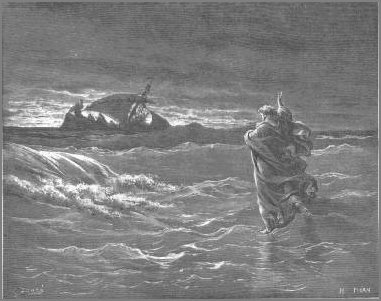

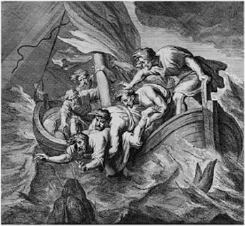
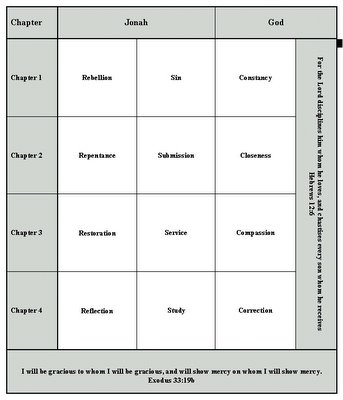


 Here's an article that might initially elicit more of a giggle than an aghast. I caught myself thinking how naughty and how quaint this whole episode was. That lasted for all of about 2 seconds.
Here's an article that might initially elicit more of a giggle than an aghast. I caught myself thinking how naughty and how quaint this whole episode was. That lasted for all of about 2 seconds. 



Or do you presume on the riches of his kindness and forbearance and patience, not knowing that God’s kindness is meant to lead you to repentance?Here we can note something very important in our understanding of the inspiration of the New Testament writings. Peter calls Paul’s letters "Scriptures" in such a way that there can be no doubt he regards them as on a par with the Old Testament Writings. He is quite clear in comparing Paul's letters to "the other Scriptures". Now Paul was the instrument of God’s in writing a large portion of the "scriptures" that constitute our New Testament. It is one more instance of the quiet and untrumpeted way that the Bible as whole witnesses to itself.

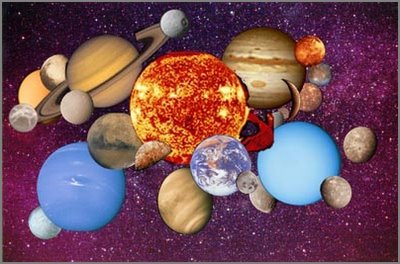



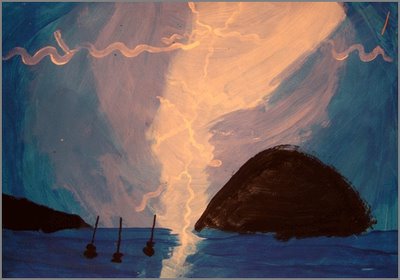
"It’s a myth."These are all things men say to deny or to dilute the fact of the flood and its underlying reasons, which are - the unrepented sin of man and the wrathful judgment of a holy God. But men, rather than face these truths prefer evolutionary uniformitarianism because it denies God, His holiness and His right to judge the sins of all men.
"It’s a moral fairy tale!"
"You don’t really believe that God flooded the whole earth do you?"
"It might have been a local Mesopotamian flood - a particularly heavy year for the annual spring rains."
"God wouldn’t do anything like that! Not my God. He wouldn’t!"
"No loving God would ever kill all those people!"
"Science has proven the flood never happened!"
"This sort of fabulous story is for times past. They don’t really happen or, if they did, they don’t happen any more."
"Nothing comparable has happened since the dawn of recorded history."


 Coming into this world wasn’t easy. It was a cold, noisy, glaring shock to my system. Sure, at the time I didn’t really know that I had a system to be shocked, but the experience was real enough. I didn’t know what I was or where I was. All I knew was that I was. And I am told that I made sure everybody around me knew how profoundly needy and how deeply disturbed I was about the whole incident. I screamed my lungs out. You see - I hadn’t asked to be born.
Coming into this world wasn’t easy. It was a cold, noisy, glaring shock to my system. Sure, at the time I didn’t really know that I had a system to be shocked, but the experience was real enough. I didn’t know what I was or where I was. All I knew was that I was. And I am told that I made sure everybody around me knew how profoundly needy and how deeply disturbed I was about the whole incident. I screamed my lungs out. You see - I hadn’t asked to be born.“If any man doth ascribe aught of salvation, even the very least, to the free will of man, he knoweth nothing of grace, and he hath not learned Jesus Christ aright.”It is important to understand that man’s will is not eradicated by this truth. It is subjugated. God’s will is given its rightful place as supreme. Nothing that He does ultimately depends upon what we decide. He decided in advance. It is simply that we finite, sin-darkened, blind sheep do not know the end from the beginning like God does. We walk in the discovery of ordained reality through the exercise of our own will. But our volition doesn’t determine the outcome. It does, however, determine our accountability - since God judges the hearts of men. Our intentions mean far more to God than our so-called “accomplishments”.


